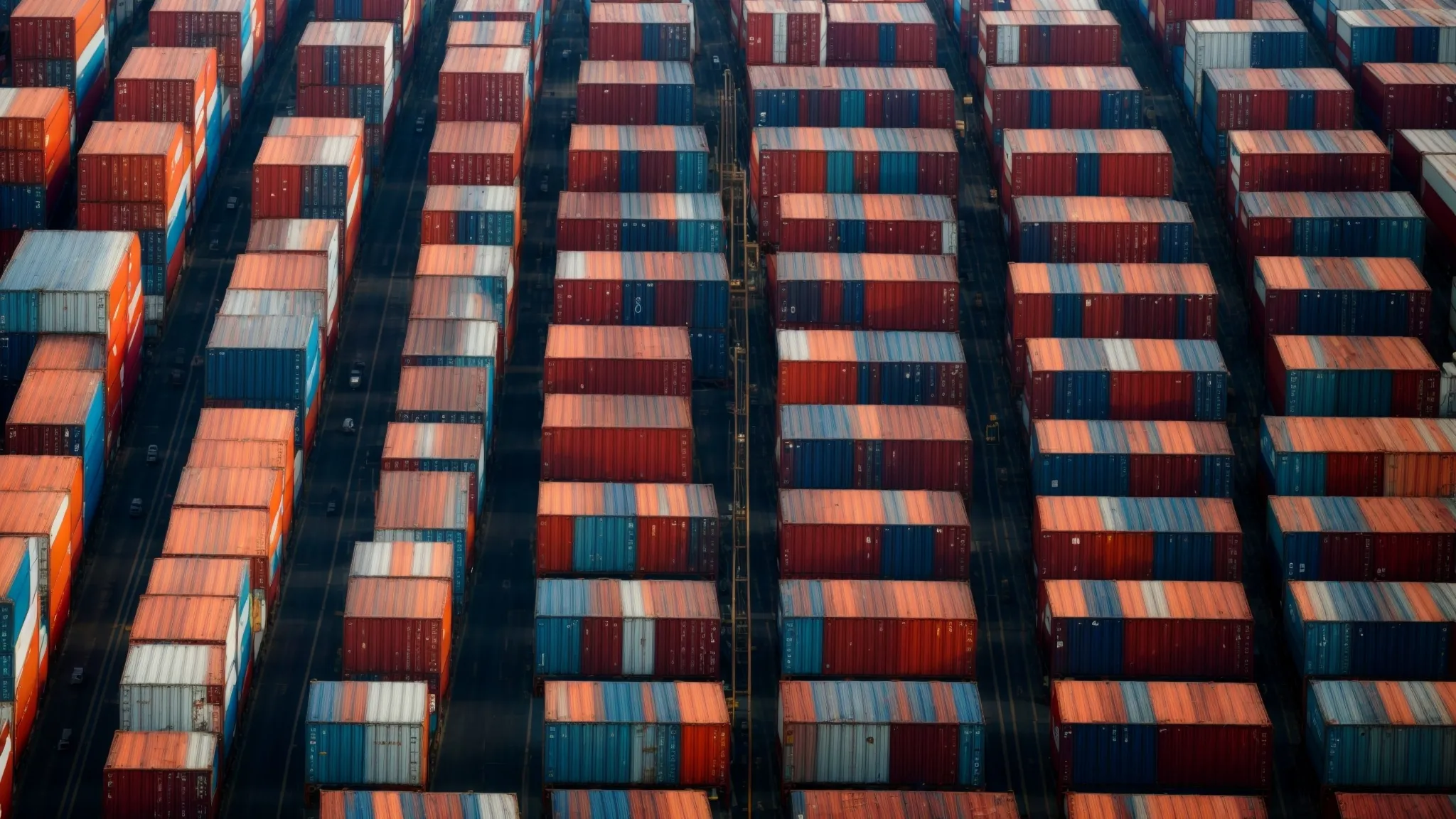The Role of ISDS in Facilitating Fair and Secure Global Trade
Investor-State Dispute Settlement (ISDS) stands as a pivotal mechanism nestled within international investment agreements, designed to safeguard foreign direct investment (FDI) and instill a sense of security in the tempestuous seas of global trade. The arbitrator plays a crucial role in resolving disputes between the parties involved.
By affording a neutral platform for conflict resolution, ISDS underpins the rule of law, ensuring that both corporations and host states adhere to fair play and due process.
Proponents of ISDS argue it serves as a crucial deterrent against the specter of trade protectionism, enabling parties to resolve disputes without compromising trade and investment relationships.
It’s a lynchpin that aligns the interests of nation-states with those of individual investors, aiming to balance the scales in favor of justice and mutual benefit.
Keep reading to unravel how ISDS functions as the silent guardian of global trade fairness and security.
The Integral Role of ISDS in Fair Commerce
- ISDS Provides a Neutral Platform for Fair Arbitration Between Investors and Host States, Upholding the Rule of Law and Investor Protection
- The Mechanism Encourages Foreign Direct Investment by Offering a Predictable Dispute Resolution Framework
- ISDS Ensures Non-Discrimination by Allowing Equal Protection and Due Process for Foreign and Local Firms in Investment Disputes
- Anticipated Reforms Aim to Align ISDS With Emerging Economic Patterns and Sustainable Development Goals
- The Adaptability of ISDS to the Unique Challenges of Emerging Economies Is Crucial for Its Continued Relevance in Global Commerce
Understanding ISDS and Its Importance in Trade

In the landscape of global commerce, the concept of International Settlement Dispute Settlement (ISDS) emerges as a cornerstone for maintaining the equilibrium of fairness and security.
As firms and corporations stretch their reach beyond domestic borders, the assurance of an equitable platform where grievances can be adjudicated is indispensable.
ISDS serves this fundamental role, allowing parties from different jurisdictions to resolve conflicts without relying on the courts of the host state, which may be perceived as biased or inadequately equipped to handle complex international trade issues.
From its roots in investment treaties and trade agreement deliberations, ISDS has evolved into an essential mechanism to uphold contractual obligations and foster a stable environment conducive to foreign direct investment (FDI), buttressing the confidence of investors and states alike in today’s intertwined economic fabric. The convention regulates the proceedings with the help of an arbitrator and tribunal.
Defining International Settlement Dispute Settlement (ISDS)
International Settlement Dispute Settlement, commonly abbreviated as ISDS, is a system present within various international investment agreements that provides a legal framework for investors to challenge host state actions. It serves as a neutral forum where disputes can be arbitrated impartially by an arbitrator, particularly useful when the rule of law in the host country is questioned or when investors face unjust treatment, such as expropriation or discrimination.
The ISDS mechanism authorizes an investor to initiate proceedings against a nation if they believe their investment protections, as enshrined in investment treaties, have been violated. By granting this capacity, ISDS embodies the core principles of due process and freedom from discrimination, critical factors that safeguard the legal interests of companies while balancing the rights and obligations of governments and foreign investors. This mechanism is overseen by an arbitrator.
Exploring the Origins of ISDS in Trade Agreements
The genesis of International Settlement Dispute Settlement (ISDS) can be traced back to a time when the burgeoning complexities of international trade necessitated a more sophisticated approach to investment protection. This exigency precipitated the inclusion of ISDS provisions in the fabric of investment treaties, with the objective of providing a dedicated dispute resolution pathway that would transcend national legal systems and mitigate the potential risks associated with cross-border investments. The International Centre for the Settlement of Investment Disputes (ICSID) serves as a leading arbitrator and tribunal in ISDS proceedings, facilitating resolutions between member governments.
Historically, the advent of ISDS was a response to the call from nations and investors seeking to preclude potential biases and inconsistencies that could emerge from using a host nation’s courts. By embedding ISDS into trade agreements, the architects of these frameworks aimed to craft a space where impartiality and equity were paramount, paving the way for prosperous trade and investment partnerships shielded by mutual trust and legally binding commitments. The center of the proceedings, the ICSID tribunal, ensures a fair and unbiased resolution.
ISDS as a Mechanism for Enforcing Trade Contracts
Often, the adhesive that binds international investment is trust, cemented by enforceable contracts; this is where ISDS stands tall as an arbitrator sentinel. In the realm of trade contracts, ISDS functions as the arbiter, ensuring that terms are honored and breaches are addressable beyond the bias of national courts.
Within the matrix of international investment, ISDS encodes certainty, thereby driving the wheels of global commerce with the assurance that obligations under trade agreements will be honored. Should disputes arise, ISDS provides a predetermined, neutral avenue for resolution, calibrated to respect the balance between investor security and host state sovereignty. An arbitrator is involved in the process, ensuring fair judgment.
How ISDS Contributes to Fair Global Trade Practices

The mechanics of global trade are often intricate, demanding a robust framework to ensure that international investors are treated equitably, irrespective of where they choose to allocate foreign direct investment. The International Centre for Settlement of Investment Disputes (ICSID) serves as a tribunal for disputes between a foreign investor and a host country party.
The role of International Settlement Dispute Settlement (ISDS) is pivotal, offering a neutral playing field where disputes can be resolved with impartiality and efficiency.
As a shield against discriminatory actions that could unfairly impact investors, ISDS stands as a bulwark assuring parties that their ventures across borders are not subject to arbitrary treatment by an arbitrator, but protected under established international investment norms.
Ensuring Equitable Treatment of International Investors
Within the fabric of global trade, ensuring that international investors receive equal treatment often hinges on the robust provisions of ISDS. This mechanism forges a setting free from local partiality, offering foreign entities the same level of protection as domestic firms and competitors, thereby upholding the tenet of impartiality essential for nurturing confidence in cross-border economic activities.
ISDS underscores the principle of non-discrimination, a bedrock of international trade, by affording each party access to a tribunal, an arbitrator, that scrutinizes the fairness of measures the host state applies. Through this process, individual investors and corporations gain the assurance that their investments are shielded by investment law, preventing any undue influence that could sway the scales of justice.
Providing a Neutral Platform for Dispute Resolution
In the global trade theater, ISDS stands as a bastion of neutrality, offering a platform where investors and states can seek amicable solutions without the partiality that may imbue domestic legal systems. This level playing field ensures that the parties engaged in trade and investment can air their grievances and seek redress in an environment that favors neither the host state nor the foreign investor but honors the sanctity of agreed-upon investment treaties and trade agreements. An arbitrator is involved in the process to ensure impartiality.
By functioning as a neutral conciliator, ISDS facilitates the peaceful resolution of investment disputes, thereby preempting the escalation of larger trade conflicts. The presence of this impartial entity emboldens the negotiation process, as each party understands there exists an accessible and fair tribunal, arbitrator, to resolve potential disputes, thereby reinforcing the overarching principles of investment law and due process.
Protecting Investors From Discriminatory Practices
Discrimination presents a formidable barrier to foreign direct investment (FDI), often discouraging corporations from venturing into foreign territories. The ISDS framework, an arbitrator party, intervenes by safeguarding investors, ensuring that they do not face unjust bias based on their nationality or the origin of their capital, thus maintaining an unprejudiced climate for investment that aligns with international investment agreements.
Through its integrated legal structures, ISDS disassembles barriers that impede equal opportunity for investors, dismantling unfair competitive edges that host nations may be tempted to grant local firms. It serves as a sentinel, vigilantly monitoring adherence to investment treaties and trade agreements, which promise foreign investors a level of protection that immunizes their assets against discriminatory practices in a host state. The arbitrator serves as a sentinel, vigilantly monitoring adherence to investment treaties and trade agreements, which promise foreign investors a level of protection that immunizes their assets against discriminatory practices in a host state.
The Security ISDS Adds to Global Trade Investments

In the dynamic interplay of international commerce, the role played by the International Settlement Dispute Settlement (ISDS) tribunal is transformative, acting as a linchpin in fostering secure and fair trade relations.
As businesses venture into new markets, the protective embrace of ISDS is instrumental in mitigating the risks inherently associated with such expansions.
It inspires conducive environments for investment, characterized by stability and predictability, which are vital for nurturing international economic growth.
Moreover, ISDS reinforces the framework within which cross-border transactions occur, bolstering the confidence of stakeholders to invest and trade beyond their native shores.
Mitigating Risks for Businesses in Foreign Markets
The navigational complexities inherent in the spread of businesses to foreign shores are significantly alleviated by the protective mechanisms of the International Settlement Dispute Settlement Centre (ICSID). Within these unfamiliar territories, ICSID acts as a compass that directs corporate ventures away from the reefs of legal uncertainty and the uncharted waters of jurisdictional turbulences.
By providing a forum where neutrality can arbitrate concerns, ISDS dilutes the risks that companies might face from a fluctuating legal environment in host nations. This fosters a climate of stability where foreign direct investment (FDI) from corporations flourishes, insulated by the assurance that investments and trade activities are secured by an internationally recognized system of justice.
Encouraging Stable and Predictable Investment Environments
Within the realm of global trade, International Settlement Dispute Settlement (ISDS) stands as a paragon of stability. It offers a predictable backdrop against which international investors can make strategic decisions, knowing that the ground rules for dispute resolution, administered by an arbitrator, are well-established and adhered to by all participating nations.
Firms embarking on the path of foreign direct investment do so with greater confidence, encouraged by the knowledge that ISDS provisions work to preempt sudden shifts in investment climates. Such assurance underpins the vitality and sustenance of long-term international economic collaborations and ensures that the arbitration proceeding, conducted by a trusted arbitrator, respects the convention and document established by ICSID tribunal, a member of the government.
| ISDS Feature | Impact on Investment Environment |
|---|---|
| Neutral Arbitration | Instills confidence in fair dispute resolution |
| Investment Rules Certainty | Enables sound strategic planning and risk management |
| Global Trade Agreement Adherence | Assures consistency in international economic policies |
Contributing to the Confidence in Cross-Border Transactions
The ISDS framework plays a fundamental role in bolstering investor confidence in cross-border transactions by serving as a dependable bastion against the unpredictability of international trade. It underpins the faith that companies and their stakeholders place in foreign markets, providing a consistent, reliable backdrop for trade and investment decisions alongside an ICSID arbitrator.
By offering transparent and consistent dispute settlement mechanisms, ISDS forges trust among international trading partners, ensuring that businesses can operate without fear of arbitrary government interference or disparate treatment in foreign jurisdictions. This trust is the bedrock upon which the edifice of international commerce stands, making ISDS an invaluable asset in the global economy.
ISDS as a Deterrent Against Trade Protectionism

The interplay between a nation’s right to govern and protect its own economic interests and the privileges granted to foreign investors is a delicate endeavor.
International Settlement Dispute Settlement (ISDS) assumes a critical role in this balancing act, providing a framework that upholds state sovereignty while simultaneously safeguarding investor rights.
This ensures a level playing field, deterring the rise of trade protectionism by mediating the removal of unjustified trade barriers and fostering a trade environment free from undue restrictions with the help of an arbitrator.
ISDS stands not only as an enforcer of legal commitments but also as a guardian against the impulse to retreat into economic isolationism, which is prejudicial to international commerce.
Balancing State Sovereignty With Investor Rights
Ensuring the coexistence of state autonomy and investor protections epitomizes the nuanced effectiveness of International Settlement Dispute Settlement (ISDS). It artfully delineates the confluence where a nation’s prerogative to legislate for the public good intersects with assurances guaranteed to foreign investors, maintaining the sanctity of investment treaties while respecting the host country’s governance rights.
In navigating between the legislative freedom of states and the rights endowed to investors, ISDS offers a balanced architecture that deters both expropriation without compensation and undue interference in sovereign affairs. It crafts an environment where nations can pursue legitimate policy objectives without compromising the just treatment and security promised to international investors under established investment law protocols.
Preventing Unfair Barriers to International Trade
The vigilant oversight of the International Settlement Dispute Settlement (ISDS) tribunal is key in dissuading nations from erecting punitive trade barriers that would unfairly disadvantage foreign investors. By ensuring adherence to international investment agreements, ISDS actively fosters a trade climate resistant to protectionism, where markets are accessible, and trade is conducted on the basis of established rules rather than arbitrary restrictions.
Crucially, ISDS operates as a regulatory safeguard, policing the intersection of international trade and investment law to preclude unjust practices that could stifle competition. The mechanism’s presence constitutes a compelling argument against the imposition of discriminatory measures, ensuring that the global trade landscape remains open and that all investors have the opportunity to compete on equal footing. The arbitrator’s presence is vital in maintaining fairness and resolving disputes.
Supporting the Removal of Unjustified Trade Restrictions
International Settlement Dispute Settlement (ISDS) functions as a vigilant gatekeeper, monitoring the implementation of trade agreements to dismantle unjustified trade barriers. It cultivates a marketplace where transactions are not hindered by arbitrary measures, allowing for a free exchange of goods, services, and investments across international borders with foreign direct investment (FDI).
The steadfast enforcement of investment law and trade pacts through ISDS ensures that protectionist tendencies are curbed, fostering an open global economy where trade flourishes under the tenets of fairness and equality:
- ISDS oversees the interpretation and application of international agreements, ensuring they are free from protectionist distortions.
- Its mandate stimulates trade liberalization, reinforcing global cooperation and economic development.
Employing a resolute approach to maintaining transparency in trade policies, ISDS underscores the integrity of economic relationships between nations. Its role is indispensable in maintaining the delicate balance between facilitating trade access and protecting national interests, solidifying an equitable and unfettered global marketplace.
Resolving Disputes and Maintaining Trade Relationships

In navigating the intricate tapestry of global commerce, the function of International Settlement Dispute Settlement (ISDS) proves critical, extending far beyond simple arbitration to ensure the durability of international partnerships.
ISDS plays an essential role in preserving and fostering enduring trade relationships by providing a firm, legally enshrined process for resolving conflicts.
Drawing on its capacity for amicable resolution, ISDS demonstrates time and again its efficacy in steering contentious issues toward mutually beneficial outcomes.
Its presence within the global trade arena highlights success stories that lend credence to the effectiveness of the system, evidently illustrating how ISDS shapes the landscape of international commerce with both strategy and subtlety.
The Role of ISDS in Amicable Resolutions
The deft navigation of ISDS in steering parties toward consensual settlements underscores its vital role within the realm of international commerce. Serving as a mediator, ISDS provides an avenue for investors and governments to resolve their differences amicably, salvaging business relationships and promoting continuity in trade and investment operations.
| ISDS Function | Outcome for Trade Relations |
|---|---|
| Mediation and Conciliation | Preserves business partnerships by targeting mutually agreeable solutions |
| Avoidance of Escalation | Prevents disputes from disrupting the flow of international trade |
This mechanism fortifies the collaboration between parties, reinforcing their commitment to dialogue over conflict: a testimony to the reconciliatory power of ISDS. It reflects the dedication to uphold trade agreements and investment treaties, ensuring a cooperative spirit endures even when faced with potential disputes.
Fostering Long-Term International Trade Partnerships
The establishment of enduring trade partnerships is intricately aligned with the equitable dispute resolution capabilities of International Settlement Dispute Settlement (ISDS). It equips stakeholders with the tools necessary to navigate through legal conundrums, cementing the foundations of trust that underpin lasting international trade relationships.
International Settlement Dispute Settlement lays the groundwork for trade continuity, fostering an atmosphere where companies and nations can collaborate over extended periods with confidence. By ensuring that trade disputes are addressed within a fair and legally structured environment, ISDS solidifies the bedrock for ongoing and future economic alliances:
- ISDS promotes an environment of reliability, where the stability of trade agreements is assured, creating fertile ground for partnerships to thrive.
- It instills a culture of trust and mutual respect, essential for the growth and deepening of long-term bilateral and multilateral trade relations.
Illustrating Successful Dispute Resolutions via ISDS
The intricacies of ISDS come to light through the lens of case studies where the system has paved the way for successful resolutions. One notable illustration is the dispute between an energy company and a Latin American nation successfully mediated by ISDS, leading to a resolution that respected the interests of both the foreign investor and the host state, ensuring the uninterrupted flow of energy investments vital to the region.
This exemplar, among others, elucidates the capacity of ISDS to navigate the complexities of international trade, effectively diffusing tensions and crafting outcomes that honor the principles of investment protection. The adjudicative process of ISDS, as demonstrated by these cases, translates legal rhetoric into constructive resolutions, thereby enhancing global economic synergy.
| Case Aspect | Details | Outcome |
|---|---|---|
| Disputing Parties | Energy company and Latin American nation | Amicable resolution reached |
| Mediation by ISDS | Investor rights and host state interests are considered | Uninterrupted investments; upheld trade and investment treaty obligations |
| Impact on Investment Protection | Investor rights and host state interests considered | Sustained confidence in the region’s investment climate |
The Future of ISDS and Evolving Global Trade Dynamics

The evolving landscape of global commerce presents a constellation of challenges that necessitate the continuous refinement of International Settlement Dispute Settlement (ISDS).
As trade becomes further enmeshed in the fabrics of emerging economies and contemplates new technologies and innovation, the anticipation of reform within ISDS is not merely desirable but imperative.
Adapting to modern exigencies while maintaining the bedrock principles of fairness and security stands as a testament to the resilience and dynamic nature of ISDS, beckoning an era where it is intricately poised to shape and respond to the burgeoning needs of international trade and investment. The ICSID tribunal, as a key party, plays a crucial role in this process.
Adapting ISDS to Modern Trade Challenges
The dynamism of global trade necessitates that ISDS reform initiatives align with modern economic phenomena, such as digitalization and the rise of service-based economies. A modernized ISDS must possess the agility to address the unique disputes that emerge from these novel sectors, ensuring that the mechanism remains robust and relevant.
Legislative developments, environmental considerations, and evolving public policy goals present new landscapes for ISDS to navigate. The mechanism’s adaptability will be pivotal in offering resolutions that honor sustainable investment practices while fostering the continued growth of international trade.
- Aligning ISDS with digital trade and service-oriented disputes
- Adapting resolutions to support sustainable investment and environmental stewardship
- Integrating public policy objectives into the ISDS adjudicatory framework
Anticipating Reforms Within the ISDS Framework
Anticipated reforms within the International Settlement Dispute Settlement framework are poised to harmonize the priorities of diverse stakeholders better, seamlessly integrating evolving trade patterns and sustainable development goals. Addressing concerns over transparency and accessibility, the recalibration of ISDS stands to offer clarifications on the rights and responsibilities of investors and states, fostering a more inclusive and participatory dispute resolution environment.
Reflecting on global expectations, the reformed ISDS will likely embody enhanced mechanisms for public interest protection, potentially incorporating greater consideration for health, safety, and environmental regulations. Such reforms aim to elevate the stature of ISDS, portraying it not merely as a bastion for investor-state conflict resolution but as a progressive institution aligned with the broader objectives of the international community.
The Impact of Emerging Economies on the ISDS Landscape
The surge of emerging economies into the international market heightens the complexity of ISDS functions. Their ascent brings novel challenges and opportunities to the mechanism, demanding nuanced approaches that accommodate the unique legal landscapes and economic structures of these burgeoning markets.
With the growing clout of developing nations in global trade, ISDS must evolve to address the disparity in negotiating power and legal expertise between established economies and their emerging counterparts. This recalibration is critical for maintaining the legitimacy and effectiveness of ISDS as a tool for fair dispute resolution:
- Adapting strategies that enable equitable participation from emerging economies.
- Developing tailored dispute resolution processes that consider the growing economic significance of these nations.
- Ensuring that ISDS remains an accessible and impartial venue for all parties involved in global commerce.
Conclusion
The International Settlement Dispute Settlement (ISDS) system is critical for maintaining fairness and security in global trade. It provides a neutral forum wherein investors can resolve disputes without the perceived biases of host state courts, enhancing confidence in cross-border investments.
The system’s origins in trade agreements reflect a historical need for impartial resolution mechanisms to mitigate risks associated with international commerce. ISDS enforces trade contract terms and guards against discriminatory practices, thus promoting equitable treatment of international investors and providing a predictable investment environment. The structure of ISDS encourages resolution of disputes in a manner that protects both investor rights and state sovereignty, effectively deterring trade protectionism.
As a result, ISDS fosters stable and long-term trade partnerships, offering pathways to amicable dispute resolution that underlines the system’s role in the seamless continuation of global trade relations. Looking ahead, ISDS must adapt to modern trade challenges, anticipate reforms, and accommodate the rising influence of emerging economies, ensuring that the system evolves in line with the dynamic nature of international commerce. In essence, ISDS is indispensable for upholding the integrity of the global trading system, acting as a linchpin for securing investments and facilitating fair international economic interactivity.
TRANSNATIONAL MATTERS PLLC
At Transnational Matters, we are experts in the realm of Global Trade and ISDS. Our team of experienced lawyers and economists have a deep understanding of the complexities and nuances involved in cross-border transactions, ensuring our clients receive top-notch legal representation and advice.
We specialize in providing guidance on international trade agreements, such as free trade agreements (FTAs) and bilateral investment treaties (BITs). These agreements play a crucial role in facilitating global trade. They establish rules and regulations to govern cross-border trade, investment, and intellectual property rights.
Our team can assist in navigating the legal framework of these agreements, ensuring that our clients are fully aware of their rights and obligations under them. We also advise on potential risks and opportunities arising from these agreements for businesses operating in multiple countries.
In addition to advising on international trade agreements, we also provide services related to international dispute resolution. This includes representing clients in arbitration and mediation proceedings, as well as advising on the enforcement of foreign arbitral awards.
We understand that navigating transnational legal matters can be complex and overwhelming for businesses. That’s why our team is dedicated to providing clear and practical advice that is tailored to our client’s specific needs. We work closely with our clients to understand their objectives and develop strategies to help them achieve their goals most efficiently and effectively.
Our experience in cross-border transactions allows us to anticipate potential legal issues that may arise and offer proactive solutions. We also have a network of trusted partners and collaborators around the world, enabling us to provide comprehensive support for our client’s global business needs.Contact our Office Today !


